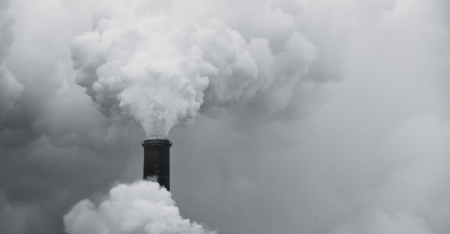Rose Marcario: Business Doesn’t Live in a Vacuum, but in an Interconnected World
“There is no business on a dead planet,” David Brower said in 1986. Business doesn’t live in a vacuum, but in an interconnected world. Any business that has not come to terms with the fact of our interconnectedness to the natural world and our own health and well-being is asleep at the wheel. We need to elect leaders who will protect our planet’s air, water and soil, and defend the health and well-being of our families and communities.
Consider the plight of our dying planet. Over 100 million Americans live where the air is often too polluted to breathe safely. Over half our streams and rivers are so polluted they are not safe for drinking, swimming or fishing. Last year was the hottest since records began in 1850 and extreme weather—snow, drought, floods—is the new norm. Climate and weather disasters in 2012 cost the American economy more than $100 billion.
Climate change is the most fundamental threat we face, according to the U.S. Department of Defense and 97 percent of scientists. Three out of four Millennials believe climate change is a threat and want action.
Our communities are hurting as a result. Just ask the people of Flint, Michigan, about drinking water. Or the children with asthma in Rose, Louisiana, about clean air. The farmers in California’s Central Valley can tell us about degraded soil.
“Politicians are like weather vanes,” said David Brower. “Our job is to make the wind blow.”
The politicians we elect to public office go to work once the campaigns end. They make decisions that affect our lives—from local school boards to municipal leaders to state legislatures to, yes, Congress and the White House. Too many are influenced by corporate interests that put profit over public health or our natural world.
For this election, Patagonia launched Vote Our Planet—a campaign urging Americans to vote up and down the ballot to elect officials and support policies that protect our planet’s air, water and soil, and defend the health and well-being of our families and communities. Patagonia has been urging people to vote with the health of the planet in mind for over a decade, but this year the stakes are higher than ever.
We must choose to vote purposefully for candidates—up and down the ballot—who support clean water, clean air, strong climate action and a courageous shift to renewable energy. We must support candidates who will work on our behalf to save this planet from becoming too hot for human survival. If we don’t act, then someone else will—someone who doesn’t care about a future for our children and other wild things.
Change happens through action and voting is direct action. In this election, vote for candidates up and down the ballot who will protect our planet.
This story first appeared on LinkedIn. Visit patagonia.com for more on the Vote Our Planet campaign, including voter guides and resources.

